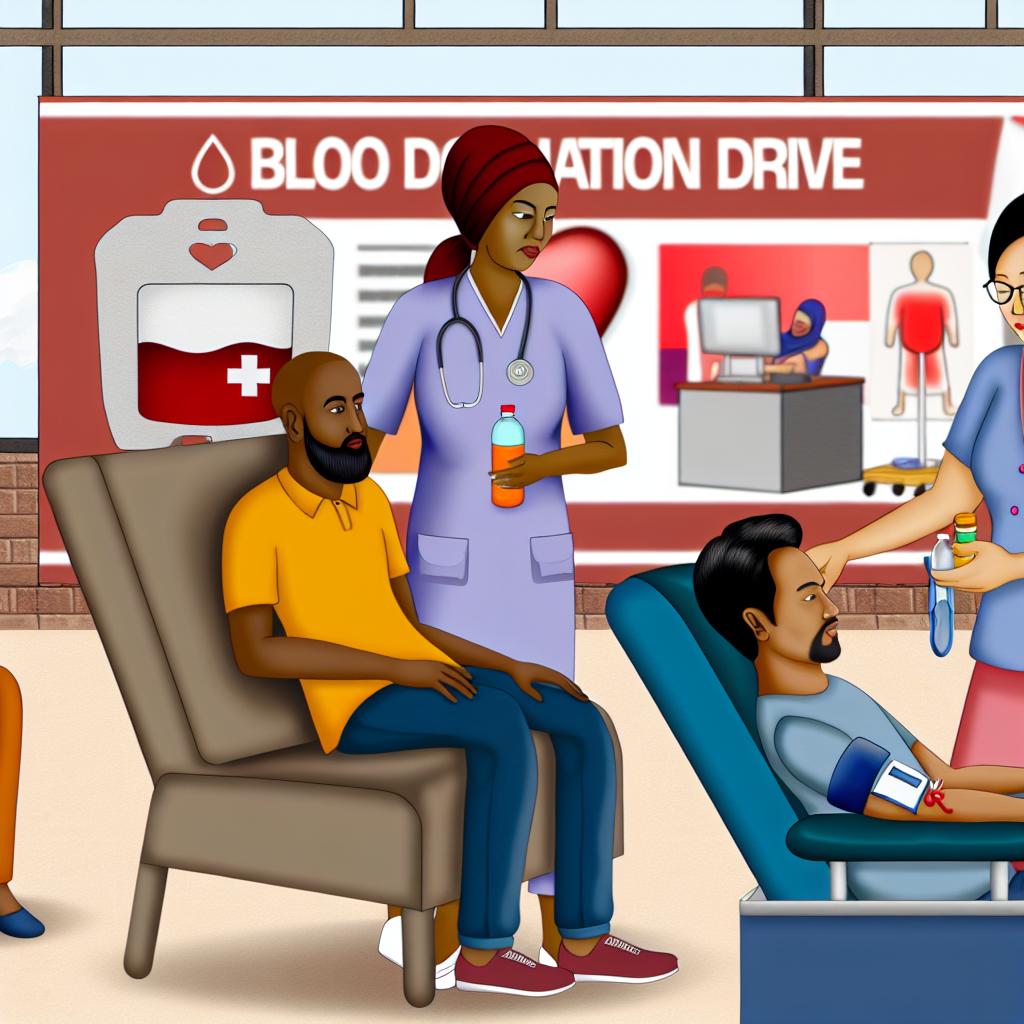The Importance of Blood Donation in Your Community
Donating blood is a simple yet significant act that contributes greatly to the well-being of communities worldwide. While individual donors might not always witness the immediate impact of their contributions, the cumulative effect of consistent blood donations is profound. Here, we explore how such an altruistic gesture benefits society and individual community members.
Ensuring a Steady Blood Supply
Hospitals and emergency services require a steady blood supply to treat patients with various medical needs. This includes surgeries, accident victims, cancer treatments, and childbirth complications. According to the American Red Cross, someone in the U.S. needs blood every two seconds. Regular blood donations help maintain an adequate supply to meet these daily demands.
A steady blood supply is critical not just for ordinary circumstances but also for extraordinary situations. Blood is needed during emergencies, whether from accidents or calamities. It also plays a critical role in daily medical procedures. The presence of an adequate blood supply ensures that medical professionals do not face unnecessary challenges in providing optimal care. Regular donors contribute to this stability, making certain zero shortages in blood banks. This steadiness is not only essential in saving lives, but also in preventing a crisis of shortage, which can result in dire consequences for patients in urgent need.
Supporting Medical Treatments
Blood and its components—such as red cells, plasma, and platelets—are critical for various medical treatments. For instance, plasma donations are essential in treating patients with blood clotting disorders, while platelets are vital for individuals undergoing chemotherapy. Community blood donations ensure that patients receive these life-saving treatments without delay.
Medical advancements increasingly rely on the availability of proper blood components. For instance, beyond chemotherapy, platelets are often used for surgeries, aiding in proper recovery. Red blood cells are essential for treating anemia, particularly in chronic cases. Consequently, the donations from community members directly impact the efficacy and reach of medical treatments. Donors often donate whole blood, but specialized donations for plasma and platelets are equally crucial. The targeted collection and distribution of these components are vital to advancing healthcare outcomes.
Promoting Public Health and Preparedness
A well-stocked blood bank is integral to a community’s emergency preparedness plan. Natural disasters, mass casualties, and pandemics can quickly deplete blood supplies. Active participation in blood donation drives enables communities to respond more effectively to such crises. By fostering a culture of regular blood donation, communities strengthen their resilience in the face of unexpected events.
For instance, in the aftermath of natural disasters like hurricanes or earthquakes, an immediate need arises for blood to treat the injured. Blood banks with adequate reserves can quickly respond, assisting medical teams on the ground. Furthermore, pandemics, such as COVID-19, expose vulnerabilities in healthcare systems, including pressures on blood supplies. By maintaining a robust reserve, communities can mitigate these pressures. Public health infrastructures benefit from reliable donations as they prepare and plan for potential disruptions. Blood donation is a proactive approach rather than a reactive measure, consolidating public health assurances.
Fostering Community Solidarity
Blood donation is a communal activity that brings people together for a common cause. It promotes an ethic of care and mutual support among community members. Blood drives often serve as a platform for awareness, encouraging individuals to adopt healthier lifestyles and heightening community engagement. Local organizations frequently partner with institutions like the American Red Cross to facilitate these events, reinforcing social ties and collective responsibility.
When community members participate in blood drives, they invest in collective welfare. These drives offer opportunities to strengthen community bonds as individuals unite for a greater cause. Blood donation also serves as an educational platform, promoting health consciousness. Awareness and education about health-related issues are a natural part of blood donation campaigns, helping reinforce positive community dynamics. By participating in these events, members become more interconnected, nurturing loyalty and shared commitment towards shared well-being.
In conclusion, donating blood is not only a personal act of benevolence but also a cornerstone of public health and community solidarity. It ensures that essential medical treatments remain available, supports community readiness for emergencies, and promotes a shared sense of well-being. By actively participating in blood donation programs, individuals contribute to a robust and compassionate community.
Additionally, the pillars of blood donation extend beyond immediate health benefits. Individuals who donate often gain personal satisfaction in positively impacting others’ lives. The simple act of donation has far-reaching impacts, reinforcing public health systems, and ensuring that compassionate and responsive measures support vulnerable populations. Through selfless donations, communities thrive, faced with challenges together, strengthening the social fabric that binds individuals. Blood donation represents a unique commitment towards humanity, enabling individuals to make impactful changes in a united manner. The act transitions from personal to communal, fostering the essence of giving, underscoring the values of kindness and resilience. By undertaking blood donation, community members are not simply saving lives; they are fortifying the spirit of collective endurance and care.
